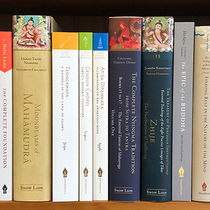.jpg)
"Neo-Organicism" and the "Play-Style-Dream" Triangle
(My philosophy in 800 words)
"It is evident that play has a significance in the life-economy of the
human being that is similar to the dream—seen from the vantage point of depth
psychology. Playing is a kind of waking dream, distinct from the ordinary dream
in sleep by its being carried out collectively."
Eugen Fink, Play as a Symbol of the World, p. 134.
The Organic
I am not a specialist but a spatialist, which means that I attempt to understand similar cultural phenomena within different spaces. Most generally, my approach can be described as “neo-organic” as it is drawing on hermeneutics, structuralist stylistics, and some other philosophies that can be seen as organic.
Daniel J. Nicholson writes about biology that “while no one doubts that the twentieth century will be remembered as ‘The Century of the Gene’, more and more biologists and philosophers have been calling for ‘A New Biology for a New Century’ that will reinstate the organism back to the center stage of biological theory.”
We are living in the century of the organic and I attempt to establish this view in philosophy.
Organic philosophies focus on the tension between the individual and the general. A panoramic view of philosophies that I have used for the purpose of organicism contains Plotinus, Spinoza, Hegel, as well as many philosophers from the twentieth century. In Bergson’s durée pure, past, present, and future form an organic whole. Nishida Kitaro’s notion of basho (場所) signifies an existentially and organically defined locality. The Chinese notion of wen (文) is an organic structure of written language transporting the Dao and can also appear in definitions of the structure of state, society and culture. In Russia, philosophers living around 1900 established a unique philosophy around the idea of “All-Unity” (Всеединство), which represents an organic “unity in multiplicity” of all beings. In the area of politics, the concept of sobornost is clearly organic. Later, N.O. Lossky’s idea of the “world as an organic whole,” Bakhtin’s philosophy of the polyphonic and harmonized totality, as well as the same author's concept of the chronotope as a “relationship of time and space,” would continue this agenda. A subgroup of the Russian Formalists even reverted to “Organic Formalism,” which was inspired by biology and supposed to be less mechanical than "regular" formalism.
It is only a small step from here to poststructuralism. Though Derrida appears to be one of the foremost critics of organic thought, I believe that his deconstructive spirit never really abandoned the search for organic harmony. True, Derrida uses the play metaphor as a deconstructive device. But every game represents a totality. Derrida’s “totality” is not based on closed systems but on differences between concrete items, and this can be seen as an intrinsically organic approach.
Hermeneutics follows the organic track in the most obvious fashion. Gadamer’s “play” as well as Vattimo’s “weak thought” insist on the interrelatedness of things and depict the world in terms of “organic” – as opposed to metaphysically established, linear, hierarchical – structures.
Play-Dream-Style
In Gadamer’s philosophy, play occupies the position of ‘Being’. Gadamer writes: “In being presented in play, what is, emerges.” This is Gadamer's emergentism. Play emerges organically and that is precisely what it has in common with dreams. Both play and dreams merely “happen,” they are not constructed ('construction' being the contrary of organic evolution). "Dream" is therefore the most important concept in my research on film. I analyze the long "hermeneutic camera" shot in proximity with Gadamer's philosophy and approach film-dream via various philosophical models, among which there is also Wittgenstein's dream as a sphere able to express the unsayable that needs to remain silent. Like play, dream reaches beyond ordinary language.
The play needs a place within which it can emerge, and this place is Being, too. A corresponding understanding of space is therefore essential for my writings on architecture, urbanism, and the philosophy of space. I analyze "the place of the dream" or "the place as a played phenomenon" that evolves organically.
The same pattern can be reformulated by using another hermeneutic-structuralist notion: style. The self-sufficient ontology of dreams/play is closely related to the ontology of style. According to Gadamer, play is a matter of self-realization and energeia. The same is true for style. Like play, style has its own telos within itself. And like play and dream, style emerges. Roughly speaking, I extend Eugen Fink's remark (quoted at the top of this article) by asking: 'If play is a sort of "collective waking dream," what then is the status of style?'
My philosophy is thus determined by an organic “play-style-dream” triangle, which I use as a theoretical foundation in my works on aesthetics (organic space, organic style, organic architecture, organic film, etc.), intercultural communication, virtual reality, and politics. I have also used it most recently in my philosophy of religion, asking: "Is religion a game"?
In principle, the analysis revolves around six questions addressing an organic form of Being, which I presented in 2000 in my habilitation file:
1. Does play have a certain style?
2. Does the dream have a style (through which it obtains its particular way of being)?
3. Does the theoretical notion of style have qualities that are dependent on an ontology of the dream?
4. Does the dream have a play-like quality, that is, does its activity (especially in the domain of aesthetics) have affinities with play?
5. Does style proceed with the lightness of play?
6. Can play appear like a dream?
It remains to say that organic approaches were not very successful in the latter half of the twentieth century. The short-lived Russian and Bergsonian adventures were superseded by – on one side of the channel – analytic philosophy that analyzes (=splits apart), and on the other side, by deconstruction. The World War II experiences of totalitarianism led to the perception that any totality must be split apart or deconstructed. My neo-organicism develops a hermeneutic alternative by rethinking synthesis and dynamic forms of holism without falling into the trap of totalitarianism.
Site Menu
RESEARCH:
in 800 Words
BOOK DESCRIPTIONS:
(Béla Tarr)
FICTION:
Kuwait Oilpunk
The Kuwait Before-After Series
VINTAGE PAGES
Tourist Guide
(other website)






